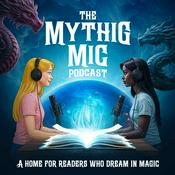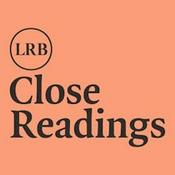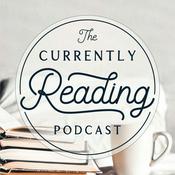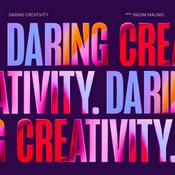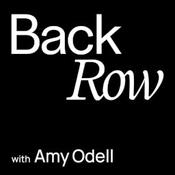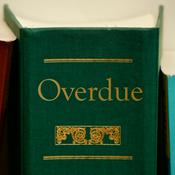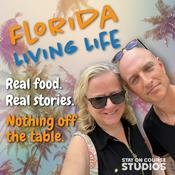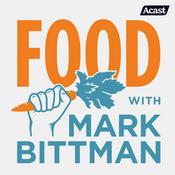112 episodes
- The storm clouds are gathering in anticipation of the Valentine’s Day release of Emerald Fennell’s raunchy film adaptation of Emily Bronte’s Wuthering Heights. The film has been described by one critic as “very horny, very sumptuous, and very demented.” Margot Robbie looks set to change the way we read this beloved classic, well, if not forever, for a few weeks during awards season.
It’s fair to say that anyone remotely connected to the world of classic literature is standing by, getting ready to jeer.
And it’s also fair to say that the film has propelled Wuthering Heights to become the most read classic of 2026. The New York subway, the London Tube and many other transport systems worldwide are dotted with earnest young people, proudly nose-deep in their Penguin Wuthering Heights.
If SLOB has a motto, it’s be prepared. To ready our devoted listeners for the big V. Day release, we’ve recorded a brand-new episode on Wuthering Heights. Emily Bronte’s novel, which may just be the most unhinged, genre-busting, unputdownable classic in English, is back, bigger, better, and balmier than when SLOB recorded our first episode back at the very beginning of this podcast.
We drink deep, but always with our trademark cheeky humor, in Emily Bronte’s biography, the secrets behind the book’s writing, and why the Heathcliff-Catherine love-story it is most definitely not GOATED, as the kids say.
Become a subscriber by signing up at Apple: http://apple.co/slob
Or join our Patreon community here: https://www.patreon.com/c/secretlifeofbookspodcast
Hosted on Acast. See acast.com/privacy for more information.
Hosted on Acast. See acast.com/privacy for more information. - Sophie talks to Richard Ovenden, OBE, the 25th Bodley’s Librarian at Oxford, about the manuscript of Frankenstein, one of the most extraordinary, and fascinating, literary treasures of all time. Richard is head of Oxford’s Bodleian, as well as the University's libraries, museums, and even botanical gardens. Though Richard isn’t personally dusting off the attic vases or planting the bulbs, he does still spend huge amounts of time with rare books and manuscripts.
In this thrilling bonus episode he talks about how the Bodleian came to own the manuscript of Mary Shelley’s Frankenstein, along with the large, fascinating, and often very weird collection gathered from the Shelley family and their friends over several generations.
This is an amazing behind-the-scenes look at what goes on in the world’s great libraries, why old books really matter, and why SLOB was right all along that Percy Bysshe Shelley is bad news.
To see the manuscript, go to the Digital Bodleian: https://digital.bodleian.ox.ac.uk/objects/53fd0f29-d482-46e1-aa9d-37829b49987d/
Become a subscriber by signing up at Apple: http://apple.co/slob
Or join our Patreon community here: https://www.patreon.com/c/secretlifeofbookspodcast
Hosted on Acast. See acast.com/privacy for more information.
Hosted on Acast. See acast.com/privacy for more information. - Published in 1970, written by an unknown new writer, The Bluest Eye is the great African American novelist Toni Morrison’s debut. It remains in many ways her most radical. It’s one of the most banned books in America since its publication – for its unflinching, explicit depictions of domestic abuse, racial and sexual violence in small town America.
Morrison wrote openly about Black sex and Black violence, challenging the increasingly celebratory tone of American literature in the late 1960s. Reviewing her in the New York Times, the legendary critic John Leonard recognized just how important Morrison’s voice would be. ““The Bluest Eye” is an inquiry into the reasons why beauty gets wasted in this country. The beauty in this case is black; the wasting is done by a cultural engine that seems to have been ‘designed specifically to murder possibilities,” he wrote. “She does it with a prose so precise, so faithful to speech and so charged with pain and wonder that the novel becomes poetry.”
Morrison would go on to write many Modernist-inflected literary tours de force, including Song of Solomon and Beloved, and is the first and only Black woman to win the Nobel Prize for Literature. We’ll be taking deep dives into Morrison’s work across four special episodes of SLOB, for Black History Month.
Become a subscriber by signing up at Apple: http://apple.co/slob
Or join our Patreon community here: https://www.patreon.com/c/secretlifeofbookspodcast
Hosted on Acast. See acast.com/privacy for more information.
Hosted on Acast. See acast.com/privacy for more information. - A serial killer on the loose in the foggy, battle-scarred streets of London after the Second World War. Margery Allingham's The Tiger in the Smoke (1952) is Bleak House meets 1984 meets Silence of the Lambs. In this last in the current Queens of Crime series, Sophie and Jonty looks at how Allingham - more, perhaps, than the other Queens of Crime - evolved her craft to suit the changing world around her. She dials back the importance of her aristocratic front-man sleuth Campion (who she first introduced in 1929) to focus more on the grizzled, working-class detective Charlie Luke. This book is a stepping stone out of Christieland into the world of PD James and Ruth Rendell.
Become a subscriber by signing up at Apple: http://apple.co/slob
Or join our Patreon community here: https://www.patreon.com/c/secretlifeofbookspodcast
Hosted on Acast. See acast.com/privacy for more information.
Hosted on Acast. See acast.com/privacy for more information. - With the release of Chloe Zhao's rapturously acclaimed film Hamnet, adapted from Maggie O'Farrell's much-loved 2020 novel, SLOB re-releases one of our earliest episodes.
Hamnet is a beautiful, lyrical novel about Anne Hathaway, Shakespeare's wife, and the early death of their son, Hamnet. O'Farrell refocussed Shakespeare's story on the women who are usually only glimpsed at the edges of his life, reinventing Anne Hathaway as a vivacious, sexy, creative and compelling full character. In doing so she reimagines Hamlet the play as a mediation on family, love, and loss, organized around Shakespeare's wife.
Our Hamnet episode itself is a historical curiosity. #18, in the earliest days of our podcast, it's officially SLOB juvenilia. We've changed and grown in the last year, and we owe everything to our listeners who tell us how it is and how it should be.
Please tell us what you think about Hamnet, book or film, by jumping on our Patreon chat: https://www.patreon.com/messages/9473d46b4c7d4e59be6239f82a3e8115?mode=campaign&tab=chats
Whether you plan to see the film or not, this book has stayed in the zeitgeist ever since it was published.
Become a subscriber by signing up at Apple: http://apple.co/slob
Or join our Patreon community here: https://www.patreon.com/c/secretlifeofbookspodcast
Hosted on Acast. See acast.com/privacy for more information.
More Arts podcasts
Trending Arts podcasts
About Secret Life of Books
Every book has two stories: the one it tells, and the one it hides.The Secret Life of Books is a fascinating, addictive, often shocking, occasionally hilarious weekly podcast starring Sophie Gee, an English professor at Princeton University, and Jonty Claypole, formerly director of arts at the BBC. Every week these virtuoso critics and close friends take an iconic book and reveal the hidden story behind the story: who made it, their clandestine motives, the undeclared stakes, the scandalous backstory and above all the secret, mysterious meanings of books we thought we knew.-- To join the Secret Life of Books Club visit: www.secretlifeofbooks.org-- Please support us on Patreon to keep the lights on in the SLoB studio: https://patreon.com/SecretLifeofBooks528?utm_medium=unknown&utm_source=join_link&utm_campaign=creatorshare_creator&utm_content=copyLinkinsta: https://www.instagram.com/secretlifeofbookspodcast/youtube: https://www.youtube.com/@secretlifeofbookspodcast/shorts Hosted on Acast. See acast.com/privacy for more information.
Podcast websiteListen to Secret Life of Books, Walk-In Talk Podcast and many other podcasts from around the world with the radio.net app

Get the free radio.net app
- Stations and podcasts to bookmark
- Stream via Wi-Fi or Bluetooth
- Supports Carplay & Android Auto
- Many other app features
Get the free radio.net app
- Stations and podcasts to bookmark
- Stream via Wi-Fi or Bluetooth
- Supports Carplay & Android Auto
- Many other app features


Secret Life of Books
Scan code,
download the app,
start listening.
download the app,
start listening.

















